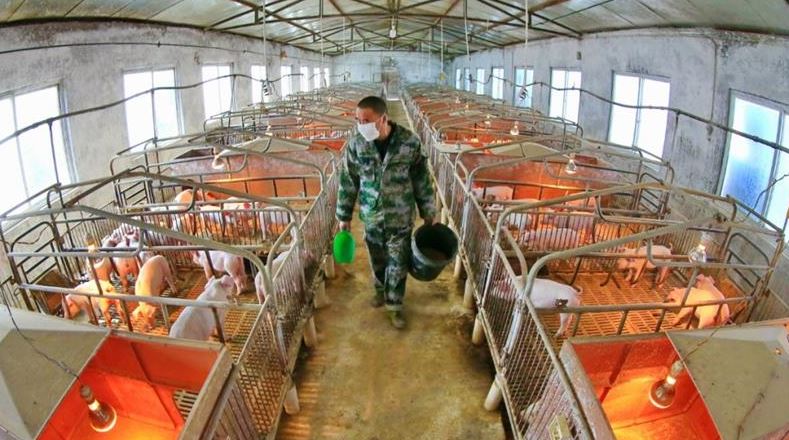
Chinese Scientists Warn That Pigs Could Be The Source Of Next Pandemic As Strain Of Swine Flu In China Has Potential To Spread To Humans
Posted by Amarachi on Tue 30th Jun, 2020 - tori.ngFile Photo Of Pigs
Chinese scientists have warned that pigs are a 'key intermediate host' or 'mixing vessel' for viruses spreading from wild animals into humans and could cause another pandemic if not taken seriously.
Experts from the Chinese Academy of Sciences have been studying outbreaks of swine flu in pig farms across the country and say the latest strain can pass to humans even though only two people are confirmed to have caught the virus, dubbed G4 EA H1N1, since the first outbreak in 2016.
The researchers who say the disease is 'highly adapted' to infect humans are now calling for monitoring of farms and people working on or near them as further transmission could cause the virus to 'adapt and become a pandemic'.
The two cases of a G4-like EA H1N1 virus were of a 46-year-old and a 9-year-old.
'Epidemiological survey found that the two patients had neighbours who reared pigs, suggesting that G4 EA virus could transmit from swine to human, and lead to severe infection and even death.'
During tests of the virus in ferrets they found symptoms such as fever, sneezing, wheezing, and coughing were all common.
George Gao, Jinhua Liu, and colleagues isolated 179 viruses from pigs across 10 provinces in China from 2011 to 2018 to study the risks they pose to humans and found that since 2016 the majority of viruses found in farmed pigs exhibited features you'd expect from the populace during a pandemic.
According to the scientists, out of 300 samples taken from pig farmers on 15 different pig farms, only 10.4 per cent had antibodies against this strain of the virus.
This means the virus poses a particularly strong chance of pandemic spread according to the scientists.
'All of this evidence indicates that G4 EA H1N1 virus is a growing problem in pig farms, and the widespread circulation of G4 viruses in pigs inevitably increases their exposure to humans,' study authors wrote in their paper.












































